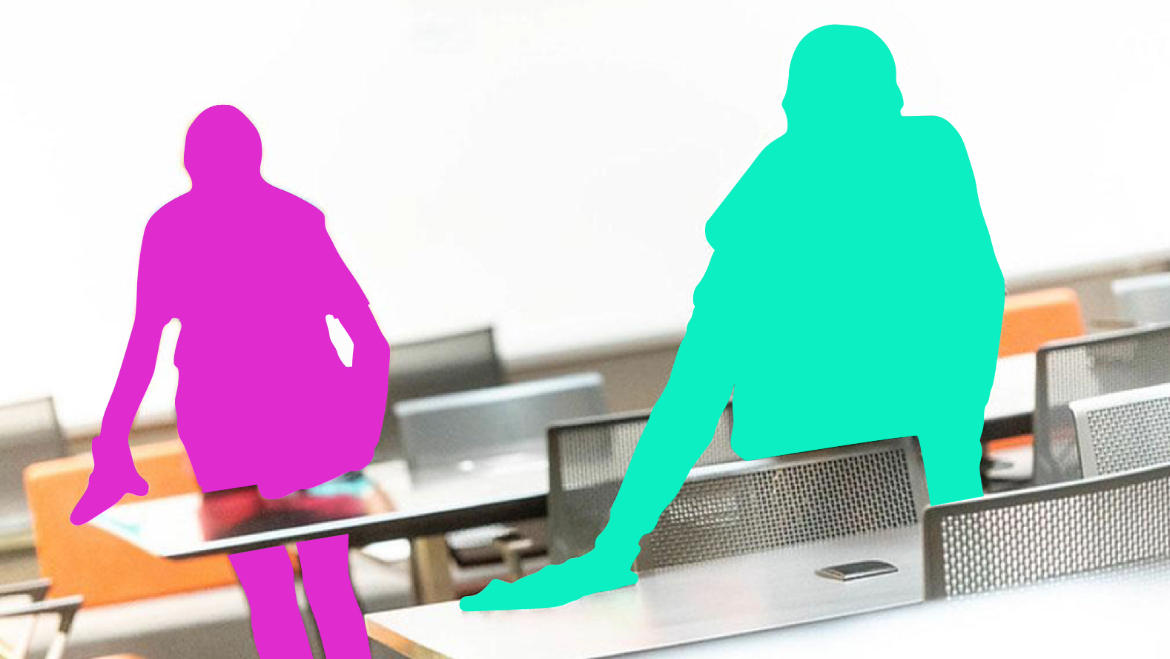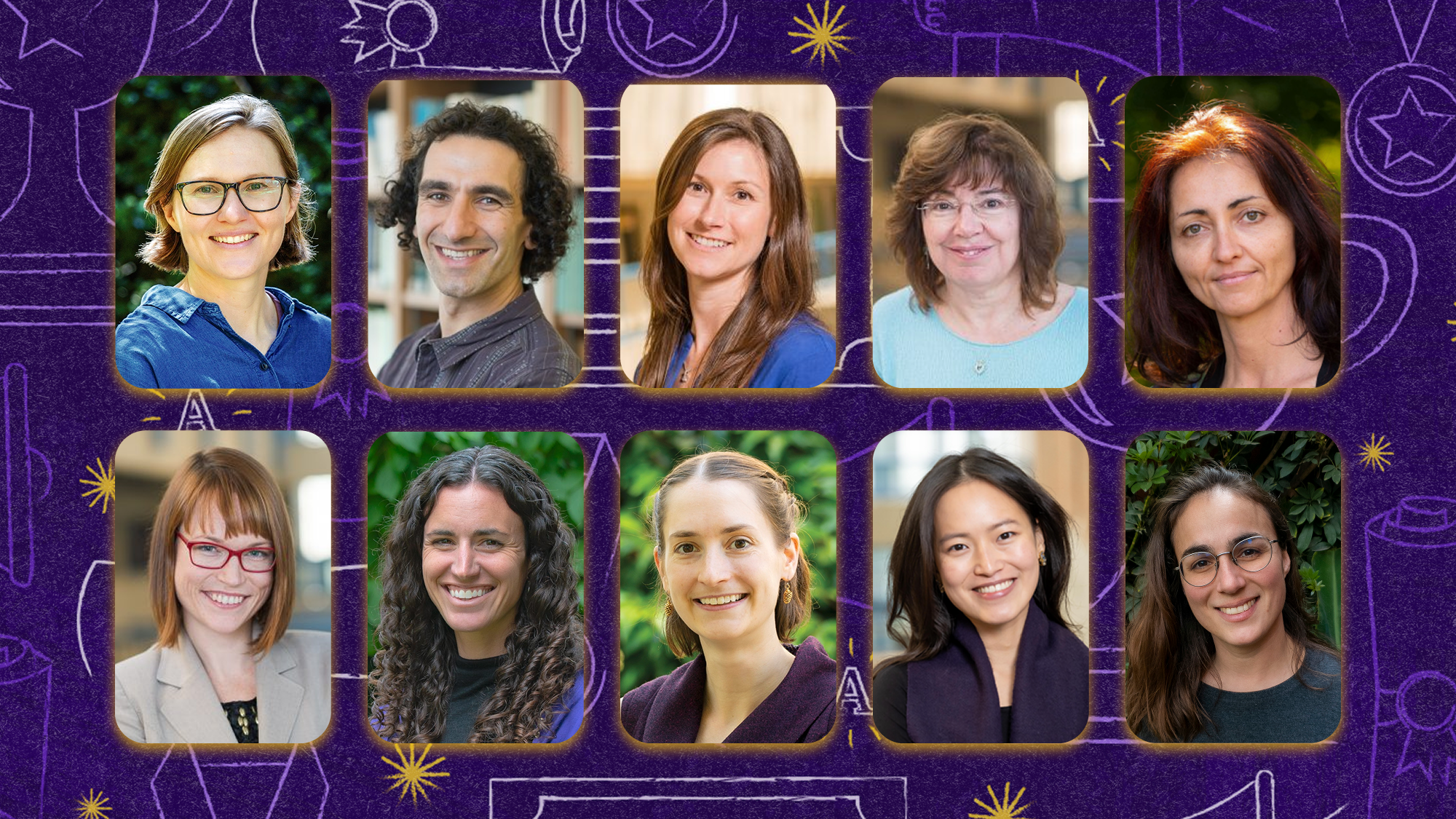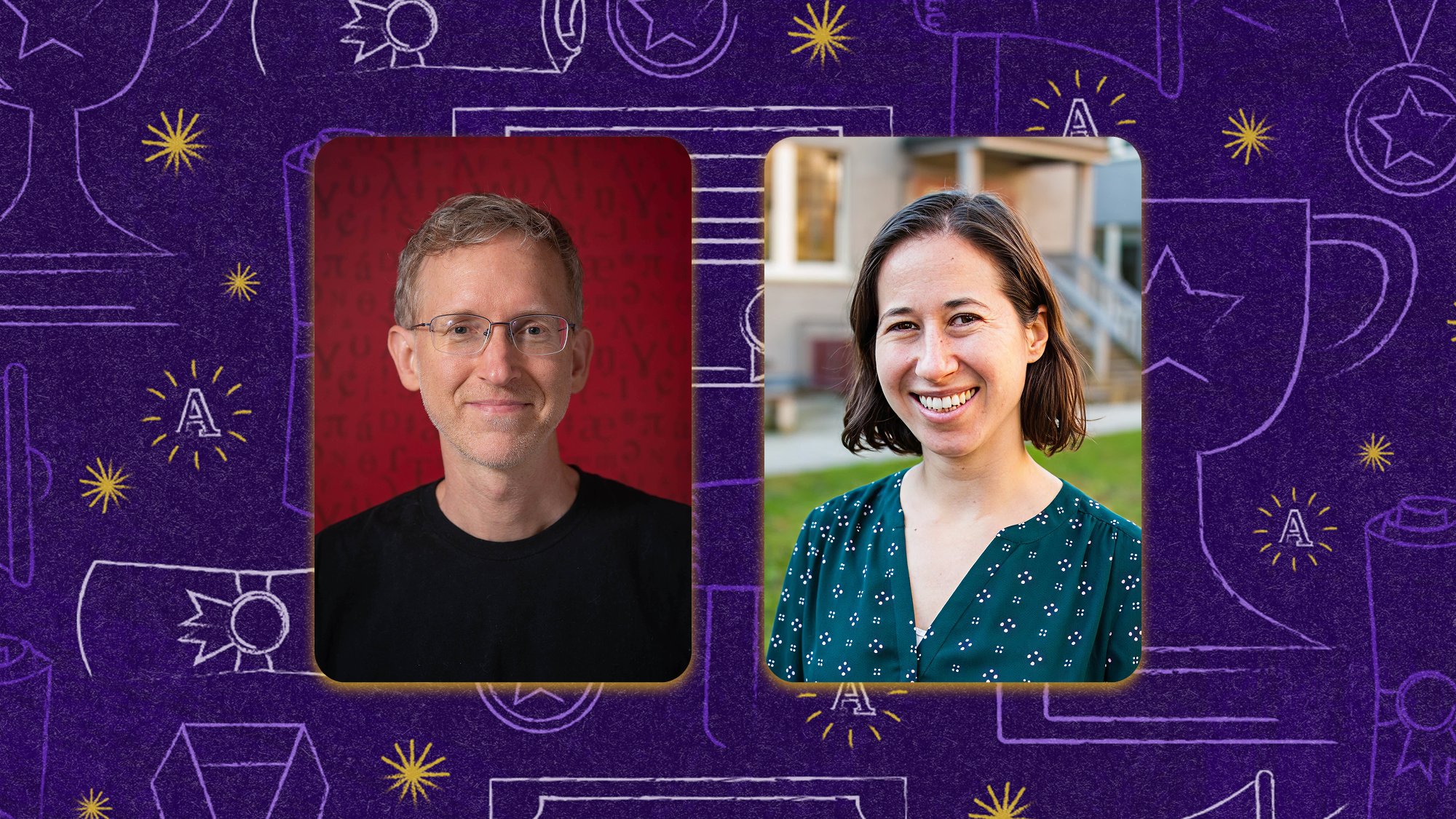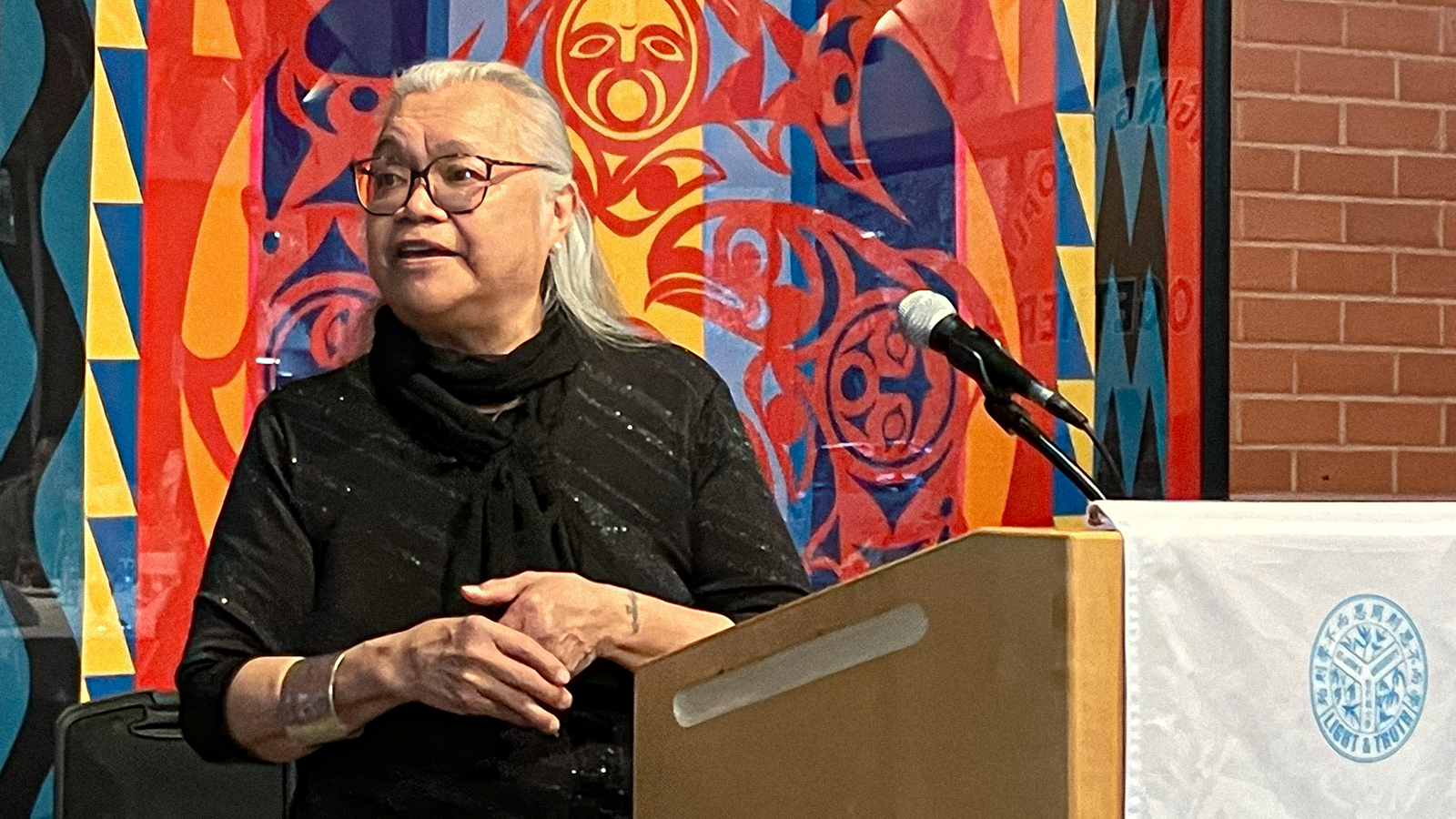

West of Vancouver Island, on the southern edge of Nootka Island, is a place called Yuquot. Also known as “Friendly Cove”, Yuquot has been the centre of the social, political and economic world for the Mowachaht/Muchalaht people since time immemorial. In the Mowachaht/Muchalaht language, it means “where the wind blows from all directions.”
In the 18th-century, Yuquot was an important site of early contact between First Peoples and Europeans, but Imperial European explorers were not the only non-Indigenous visitors here. Many of the trade ships that navigated to Yuquot were crewed by Chinese sailors and craftspeople. In 1789, a Chinese crew member of the Iphigenia fell to his death while taking down the ship’s masts and yards upon arrival. He may be the first non-Indigenous person to have been buried in Yuquot.
Despite their absence from Eurocentric narratives, transpacific Indigenous-Asian encounters are a key part of the histories of the North American west coast. These stories are particularly significant to Mowachaht/Muchalaht First Nation Elder Margaretta James, who is an MA student in the UBC Institute for Gender, Race, Sexuality, and Social Justice, and Visiting Scholar in Residence at UBC’s St. John’s College.
“My thesis project centres creating a document that tells the migratory story of Asian peoples from China and the Philippines to Yuquot...I am interested in the effects these journeys have on the community, locally, regionally and globally, both historically and to the present day.”
For Elder James, transpacific Indigenous-Asian encounters are not only a matter of academic interest, but the very threads that weave together her own life story. Elder James’ mother was Stlatlumnh of the Lílwat and her father was Visayan from the Philippines. “My Indigenous and Asian upbringing of grounded and consistent belief and value system were ingrained and instilled in my blended world,” she says.
In 1980, she married Arnold James, a Nootka man of mixed Mowachaht and Muchalaht heritage. In the same year that they married, Arnold introduced Margaretta to Yuquot, the ancestral summer home of the Mowachaht/Muchalaht people for over 4,000 years.
“Yuquot is not just a place, it’s a feeling.”
“One only has to visit Yuquot to get that sense of spirituality from this very special space and original site of the Yuquot Whalers’ Shrine,” says Elder James. “Living among the Mowachaht/Muchalaht community has provided me with the opportunity to witness and observe the respect for life with dignity and peace. Though contemporary issues often present complex situations, the Nuu-chah-nulth concept of isaak, respect with an open heart and open mind, is at the base of the experience.”
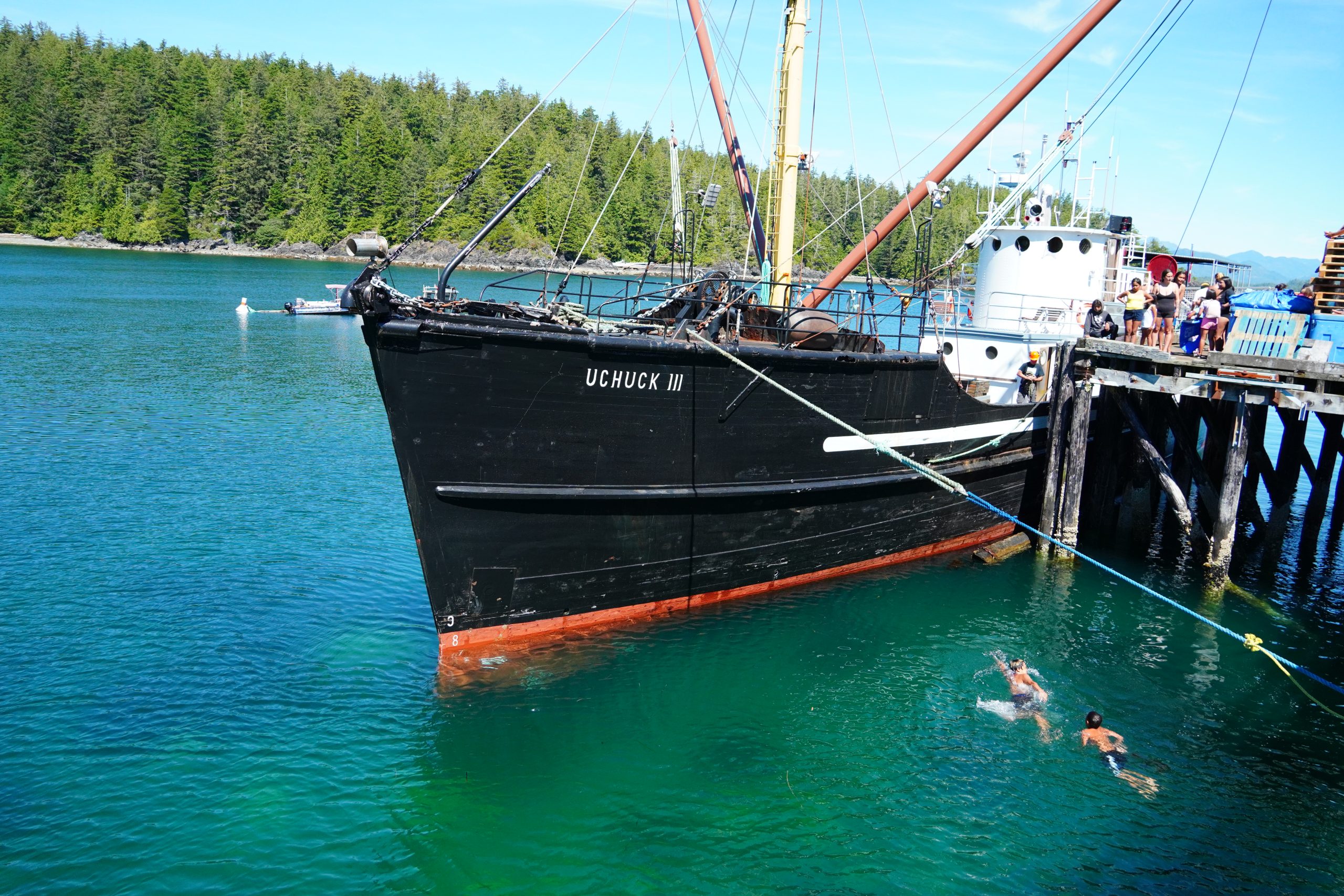

MV Uchuck III, one of two ways of getting to Yuquot. Photo by Victoria So.
Every summer, the Mowachaht/Muchalaht First Nation hosts the Annual Yuquot Spirit Summerfest, a one-day barbecue commemoration event that celebrates the history and spirituality of Yuquot. This year, the 32nd Fest will be held on August 3, 2024. Emerging from the COVID-19 slow-down in seasonal visitors, the Mowachaht/Muchalaht First Nation is currently updating facilities to prepare exhibits, tours, and accommodations to revitalize Yuquot tourism.
For Elder James, the revitalization of Yuquot goes hand-in-hand with her passion for uncovering its histories of Asian-Indigenous encounters. “Margaretta shared with me her interest – really, her life’s goal – of completing a degree and in telling the stories of Indigenous-Asian encounters on the west coast of the continent,” says GRSJ professor Dr. JP Catungal, who is Elder James’ thesis co-supervisor, along with Dr. Henry Yu (Department of History).
“At the time, the conversation was around Margaretta’s interest in pursuing a Bachelor’s degree. I suggested a Masters degree instead,” says Dr. Catungal. “I thought it more fully recognizes her life’s work as an elder and knowledge keeper in her community. These kinds of grounded and experiential knowledge, situated in community, should be valued and recognized.”
“I am very happy that UBC has language that enables students like Margaretta to be part of the GRSJ community and to pursue her research interests through our M.A. program,” says Dr. Catungal. “At the same time, we need to do more to lower the barriers for equity-deserving communities, including and especially Indigenous communities.”
Seeing her lived experiences reflected in an academic context at UBC is what gives meaning to Elder James’ research.
“At the same time that I am a student, I am also a mother, grandmother, and great-grandmother. My educational experience is about more than just myself. It paves the way for our youth and future generations of Mowachaht/Muchalaht scholars.”
“Connecting and collaborating with professionals in the various institutions and disciplines has provided a basis of support for my personal goals of completing my education,” Elder James says. “Connecting with persons of such high personal integrity, honesty in friendship and mutual admiration has defined my experience at UBC.”
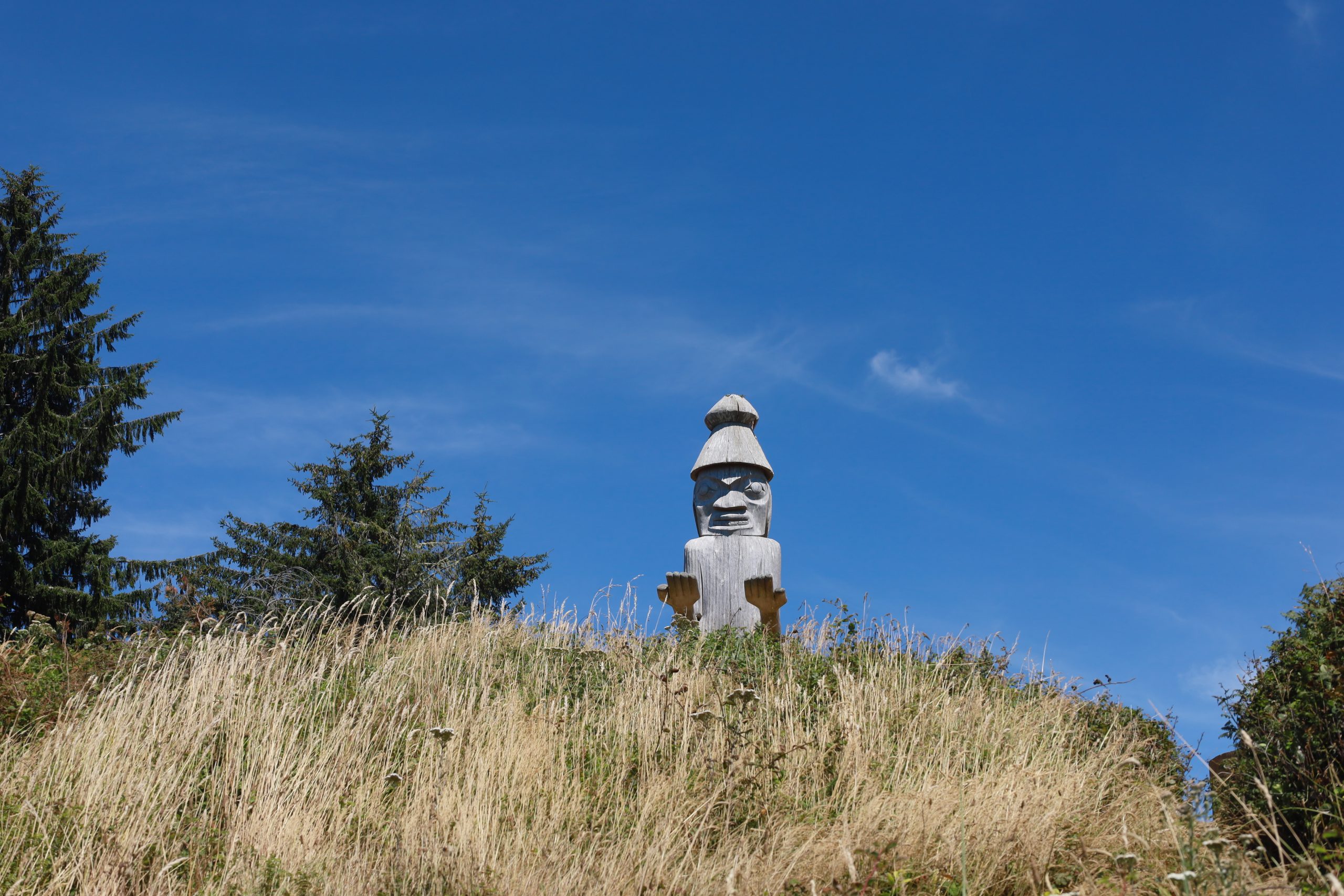
Yuquot Welcome Pole
Welcome Pole that greets visitors to Yuquot. Photo by Henry Yu.
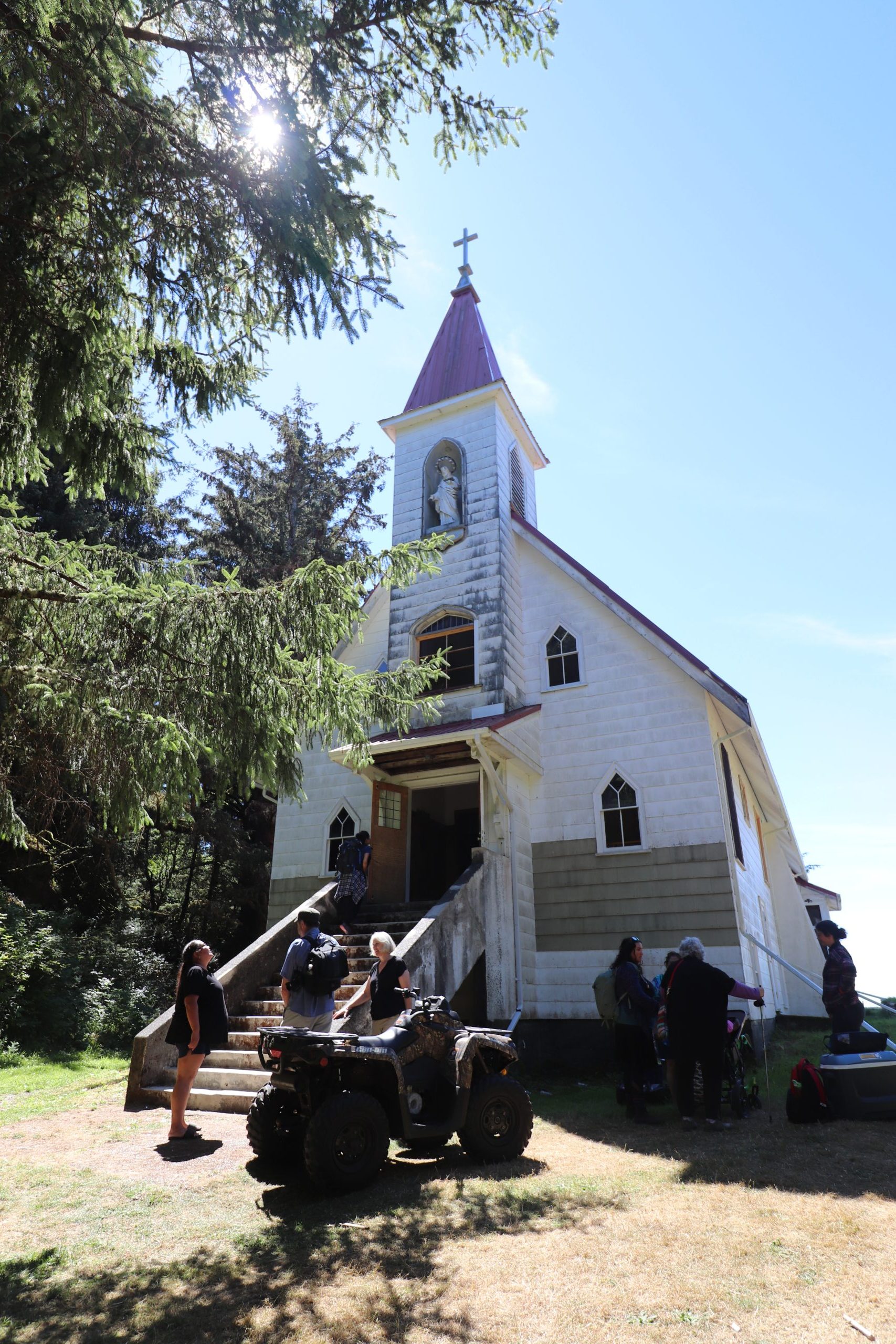
Yuquot Catholic Church
Yuquot Catholic Church. De-consecrated in 1990, it now serves as a community gathering place. Photo by Daniel Chen.

Yuquot beach
Yuquot beaches are covered in pebbles instead of sand. Photo by Henry Yu.

Yuquot celebration for Chief Mike Maquinna
Mowachaht/Muchalaht Chief Mike Maquinna receives a carving to honour his designation. Photo by Henry Yu.

Plaque about Yuquot
Plaque marking new Yuquot designation in 1996. Photo by Henry Yu

Elder Margaretta James with the children of Yuquot
Margaretta James with the children of Yuquot at Summerfest 2016, August 6. The 2016 event commemorated the 50th anniversary of the Parks Canada archaeological dig that proved the Mowachaht/Muchalaht had continuously inhabited Yuquot for over 4300 years. Photo by John Price.
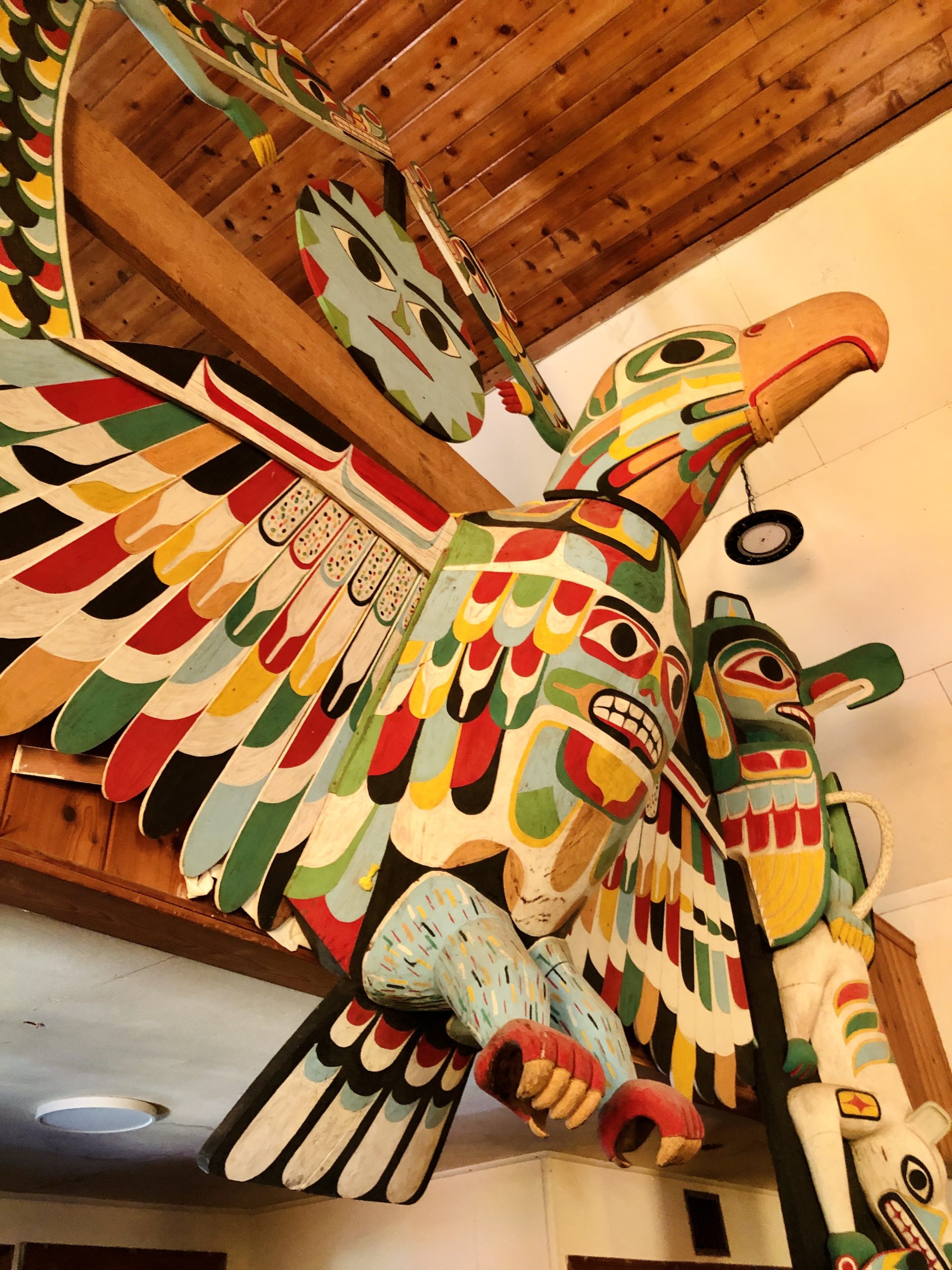
Yuquot Catholic Church interior
Carvings inside Yuquot Catholic Church. Photo by Ken Chow

View from Yuquot
Photo by Victoria So
Guest piece by Brooke Xiang (he/they), Communications Specialist for the Department of English Language & Literatures and the Department of History
